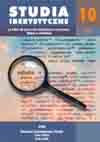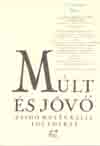
Phonetic Realization of Acronyms in Spanish and Polish
Realización fonética de las formaciones siglares en español y polaco
Keywords: abbreviation; borrowed abbreviation; acronym; phonetic realization; pronunciation
The purpose of the present article is to present different types of the phonetic realization of abbreviations which function contemporarily in Spanish and Polish. These constructions are special linguistic elements because their graphics are accepted in spite of phonetic and orthographic breakings of patterns of any language. Because of this fact, the pronunciation is one of the most important problems concerning this phenomenon. The main emphasis of the article is put on the presentation of the typology of abbreviations: a distinction is carried out between the elements which can be pronounced as one word and these which, on the other hand, are spelled out. Furthermore, the different solutions of phonetic realizations of borrowed abbreviations in Polish and Spanish are presented.
More...


